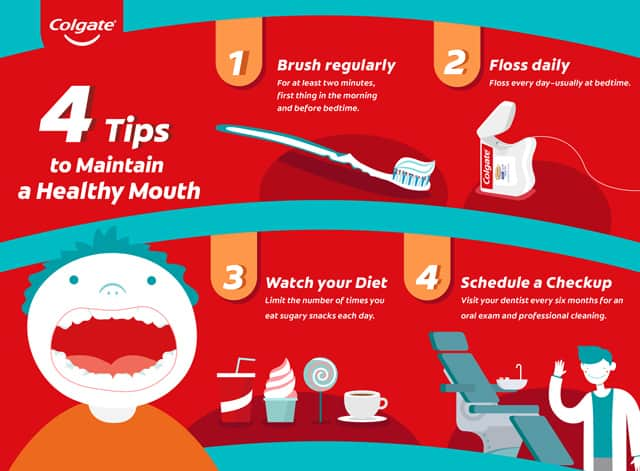Nurturing Sound Practices: This Value of Oral Health
Maintaining your oral hygiene is a crucial yet often overlooked aspect of overall well-being. Many people underestimate the effect that a well-maintained oral cavity can affect their lives, in terms of both physical and emotional well-being. Good oral hygiene not only prevents cavities and gum disease but also contributes to a self-assured smile and better self-esteem.
Furthermore, the link between oral health and systemic health is gaining recognition. Poor oral hygiene can result in various health issues, such as heart disease and diabetes. By establishing healthy habits focused on oral care, individuals can significantly improve their quality of life and reduce the risk of serious health complications. This article investigates the significance of maintaining good oral health and offers practical tips for incorporating effective dental care into your daily routine.
Grasping Dental Health
Oral health is a essential aspect of general health that is often ignored. It encompasses not just the condition of your teeth, but also the health of your gums, lingua, and mouth. Proper oral hygiene practices like regular brushing, flossing, and dental check-ups can prevent a variety of dental issues, including tooth decay, gum disease, and bad breath. Maintaining oral health is key, as it can also influence various health conditions, such as diabetes and cardiovascular disease.
Understanding the factors of oral health is important for proper care. The mouth is home to a diverse array of bacteria, some of which are beneficial while others can lead to infections and decay if not managed properly. A balanced diet plays a significant role in supporting oral health, as sugary foods and beverages can add to the growth of harmful bacteria. Regular hydration and minimizing acidic drinks can also support the health of your enamel, the defensive layer of your dentition.
Engaging in preventative care is one of the best ways to preserve oral health. This includes scheduling routine visits with a dentist, who can detect potential problems before they become critical. Educational resources about correct brushing techniques and flossing methods can enable individuals to take command of their oral hygiene. By prioritizing oral health, you are not only taking care of your smile, but also contributing to your long-term general well-being.
Daily Habits for Strong Teeth
Maintaining good oral health commences with establishing a consistent daily routine. Brushing your teeth no less than two a day is essential for removing plaque and staving off cavities. Using anticavity toothpaste enhances this effort by fortifying tooth enamel, making it more resistant to decay. Make sure to brush for at least two minutes, covering all surfaces of the teeth and paying particular attention to the gum line, where plaque tends to build up.
Flossing is another vital habit that should not be overlooked. Many people neglect this important step, but flossing daily helps remove food particles and plaque from between the teeth, where your toothbrush may not reach very well. This practice reduces the risk of gum disease and cavities in hard-to-clean areas. Incorporating mouthwash into your routine can also improve oral health by providing an extra layer of protection against bacteria.
Finally, regular dental check-ups play a significant role in keeping healthy teeth. Visiting your dentist every six months enables professional cleanings and early discovery of potential issues before they become serious. Your dentist can offer personalized advice and recommendations customized to your individual oral health needs. By committing to these daily habits and prioritizing routine visits, you can ensure a better, whiter smile for a long time to come.
Recognizing Signs of Oral Issues
Acknowledging indicators of dental problems early can greatly influence your overall health. Common signs include persistent bad breath, which may signal gum disease or tooth decay. If citydent.lt notice an unusual taste in your mouth that doesn't fade, it is essential to pay attention, as this can be a signal of infection or other underlying issues. Additionally, any alterations in the hue or consistency of your gums should cause alarm, especially if they appear swollen or hemorrhage during brushing or flossing.
Another crucial sign to be cognizant of is dental sensitivity. If you encounter discomfort when eating hot or cold foods and beverages, it may point to problems like enamel erosion, cavities, or gum recession. Soreness in and around your mouth, be it a constant ache or sharp pain in specific areas, suggests that a visit to the dentist is warranted. Ignoring these signs can lead to more significant dental problems and increased pain in the time ahead.
Lastly, keep an eye on any alterations in the alignment of your teeth or jaw. If you notice that your bite feels off or if teeth are shifting, it may be a warning of periodontal disease or other oral issues that require attention. Routine dental check-ups are crucial for catching these problems early and maintaining optimal oral health. Staying vigilant about these signs helps ensure a forward-thinking approach to oral care, preventing complications down the road.
